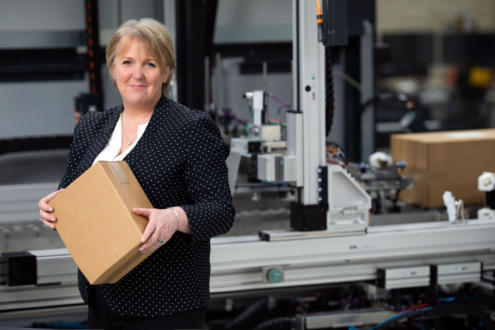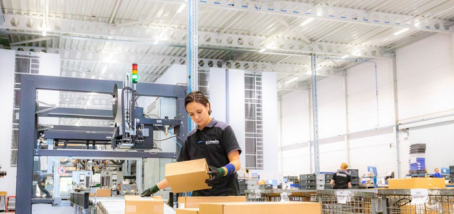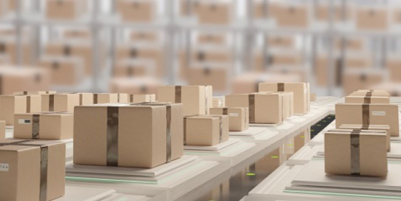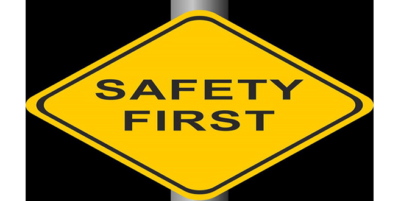-
ROSSLARE EUROPORT TARGETS HEALTH & SAFETY WITH CAMERA TELEMATICS PARTNERSHIP - 2 days ago
-
Landmark Study Reveals Wearable Robotics Significantly Boost Safety and Efficiency in Industrial Environments - July 24, 2024
-
Visku Tackle The Retail Seasonality Challenge One Pallet At A Time - July 22, 2024
-
KAMMAC AND BERGEN LOGISTICS STRENGTHEN FASHION & LIFESTYLE SERVICES IN THE UK - July 19, 2024
-
TENTBOX EXTENDS PARTNERSHIP WITH ARROWXL TO SUPPORT INCREASING DEMAND - July 17, 2024
-
The Perfume Shop improves customer journeys while driving profitability in partnership with Scurri - July 17, 2024
-
ZEROMISSION SECURES £2.3M ($3M) INVESTMENT TO ACCELERATE ELECTRIC FLEETS - July 16, 2024
-
BCMPA CELEBRATES SUCCESS OF 2024 CONFERENCE - July 15, 2024
-
Best of the Best: Jungheinrich Celebrates Triple International Award Win - July 12, 2024
-
GOPLASTICPALLETS.COM CALLS ON NEW CHANCELLOR RACHEL REEVES TO CONSIDER PLASTIC PACKAGING TAX REFORM - July 10, 2024
A growing number of internet retailers are struggling to fulfil orders as a result of a shortage of cardboard packaging brought about by the boom in online sales during the pandemic.
Jo Bradley, Business Development Manager for packaging solutions at Quadient, warns that with some paper and sheet board producers rationing supply to even their biggest customers, buyers are having to pay a significant premium to secure the packaging materials they need.

“The price of corrugated cardboard (OCC) has risen from around £60 a tonne in December 2020 to about £75.50 a tonne in late January 2021,” Jo Bradley says.
“The problem,” she continues, “has been caused by the switch in consumer spending from the high street to online since the start of the Covid-19 crisis. Figures from the Office of National Statistics indicate that internet retail sales grew by 32 per cent during 2020.
With countless surveys indicating that any significant drop off in online sales is unlikely even after non-essential retailers have re-opened, demand for cardboard is set to remain high.
Jo Bradley says: “Quite simply the switch to online retailing has resulted in a substantial and sustained hike in the amount of cardboard that is needed throughout the retail supply chain so, in the short to medium term at least, packaging buyers will have to cope with the ‘double whammy’ of longer lead times and higher prices.”
Despite the rising costs and supply issues surrounding cardboard packaging, it is estimated that e-commerce sellers continue to waste in the region of 30 per cent of this increasingly precious commodity by shipping orders in vastly oversized cardboard boxes.
“It has never been more essential for retailers to reduce the amount of cardboard material that they use within their pack and despatch operation, and yet many continue to pack outbound orders in boxes that are way too big,” says Jo Bradley.
The CVP Impack and CVP Everest fit-to-size automated packaging systems from Quadient have been developed to reduce the waste associated with oversized packaging within fulfilment operations by creating perfect sized boxes for every consignment.
A single operator can construct up to 1100 bespoke packages per hour with the CVP Everest – typically amounting to a 30 per cent saving in cardboard across the year.
Jo Bradley adds: “The Quadient technology dramatically reduces cardboard use and, therefore, costs. With the upturn in demand for cardboard packaging forecast to be on-going and material prices set to continue their upward trajectory, the economic argument for investing in fit-to-size box making technology has never been more compelling. E-commerce retailers and their fulfilment services partners simply cannot afford not to make optimum use of their valuable cardboard resources and the best way to do this is to adopt technology that cuts down on waste.”

































